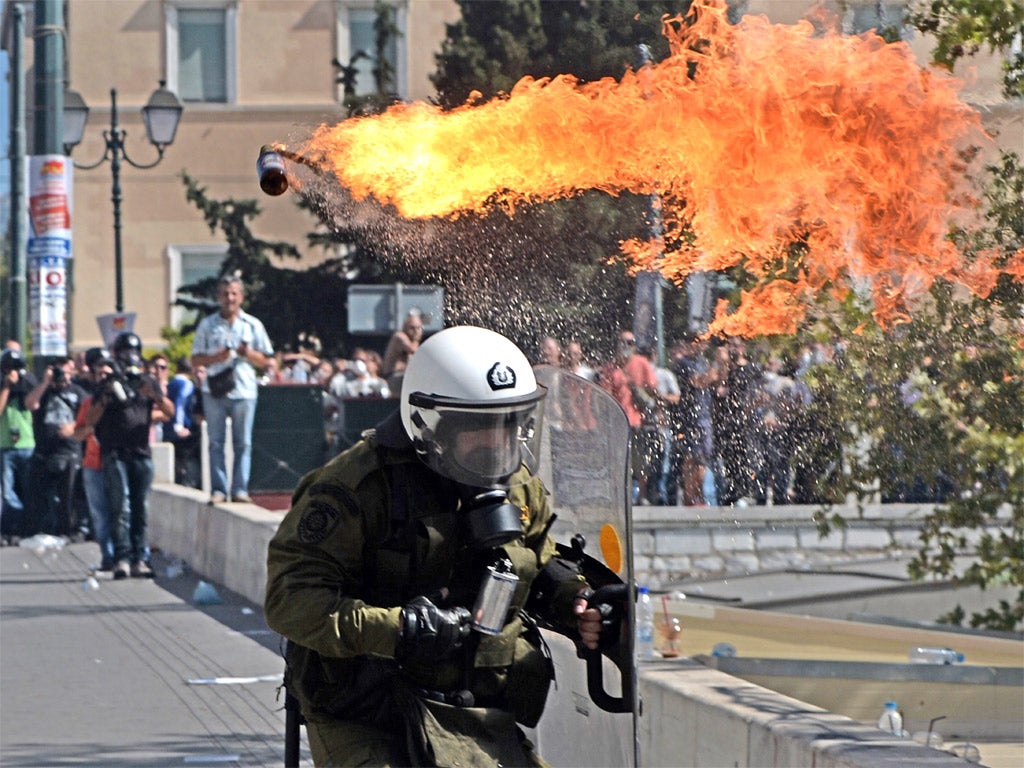When will we learn from history and stop dodging the Euro issue with false promises of referendums?
In politics, as in all human relationships, we neither forget those who offer support in times of stress, nor forgive those who withhold it. Don't our politicians realise?

So now we’re to have a referendum in Scotland on independence before the next election and a referendum on Europe after it. Thus Britain, a country without a constitution, lurches its way into massive constitutional change, without preparation let alone a proper parliamentary debate. Even the move to allow the Scottish vote to extend to 16- and 17-year-olds is proposed as if it had no consequences, like lengthening the voting hours.
The EU, as with Scottish independence, was relegated to the fringes of all three party conferences this year. Even Nick Clegg avoided them in his speech to the Lib Dems. We all know the reasons. We’re agreeing to a Scottish referendum in 2014 because the Government hopes, by making it an “in-or-out” choice, to stop the independence train in its tracks before it can get up enough steam to go off on a separate line completely.
In the same way, David Cameron hopes, by promising an EU vote, which won’t be an in-or-out choice, that he will be able to stop Ukip and the anti-European members of his own party from getting up steam in time to upset his electoral hopes. The practical issues of renegotiation will be postponed for another day.
The problem with “other days” is that they do arrive sooner or later. When the Scots come to make their decision, are they to assume that Britain will or will not be in the EU for the long term? If, as it may well be, the UK is on a course for withdrawal, that must affect the votes of the majority of Scots who remain much more pro-European than the English.
If, indeed, the Scots do decide on independence, where will this leave the English in their negotiations for a new deal in Europe? The Government’s assumption is that this won’t happen, that the Scottish referendum will end in a vote to remain within the UK and that ministers can park the EU issues safely in the pending file. Harold Wilson held a referendum after a renegotiation which actually changed very little in our terms of membership of the community. So can David Cameron.
The difficulty with this view is that the European Union at the moment is a project still in the making. We assume that our fellow members will somehow allow us to sit on the sidelines until we decide that the time is ripe for a new deal, at which point everyone else is supposed to clap us on our backs.
That is certainly the tone of the Prime Minister when he announced this week that he was in favour of a referendum once a renegotiation had taken place. On his account, our partners in the euro or those waiting to become members (i.e. virtually all of them) would busy themselves with a more integrated federal set-up. We would then say, fine, but we want something entirely different for ourselves.
It’s not going to be like that, however. Europe is not going to suddenly close ranks and march together towards a federal super-state. It is going, instead, to muddle through this crisis with various steps towards economic integration, a single banking union and tighter rules on budgetary supervision. It may be a decade before the end becomes clear, if indeed it ever does.
In the meantime, we will hardly endear ourselves by standing apart from it all as if we had no interest in the outcome. When it comes to renegotiation, it is hard to see ourselves having any friends. Cameron, if he’s still in power, will simply be setting himself up for an even greater apparent failure on which to hold a referendum.
There is a simple rule in political life, as in all human relationships. People do not forget those who offer their support in times of stress. They never forgive those who withhold it.
Why do we assume our fellow EU members will let us sit on the sidelines?
Turkey, Syria, and double standards
It really is rank hypocrisy for Turkey to stop flights that allegedly contain military equipment from crossing its airspace to Syria, while all the while allowing shipments of arms to cross its land border to help the rebels.
Turkey’s conduct is even more ridiculous when you remember that Britain, along with its EU partners, had declared that it wasn’t sending arms to the Free Syrian Army while saying that it would be delivering communications equipment – the very items said to have been seized by Turkey when it intercepted the Syrian airplane.
Still more resonant of double standards is the decision by British security to arrest a couple of UK citizens for travelling to Syria in support of “terrorism” when the Government is open in its support of the Free Syrian Army.
What it’s trying to do, of course, is to separate the recognised opposition (good) from the fundamentalists (bad). It’s a silly game. The reality is that there is no moral purity in responding to this conflict from the outside. As a government, we should stand aside. What we can’t do is to have it both ways, claiming neutrality while trying to determine the result.
Join our commenting forum
Join thought-provoking conversations, follow other Independent readers and see their replies
Comments